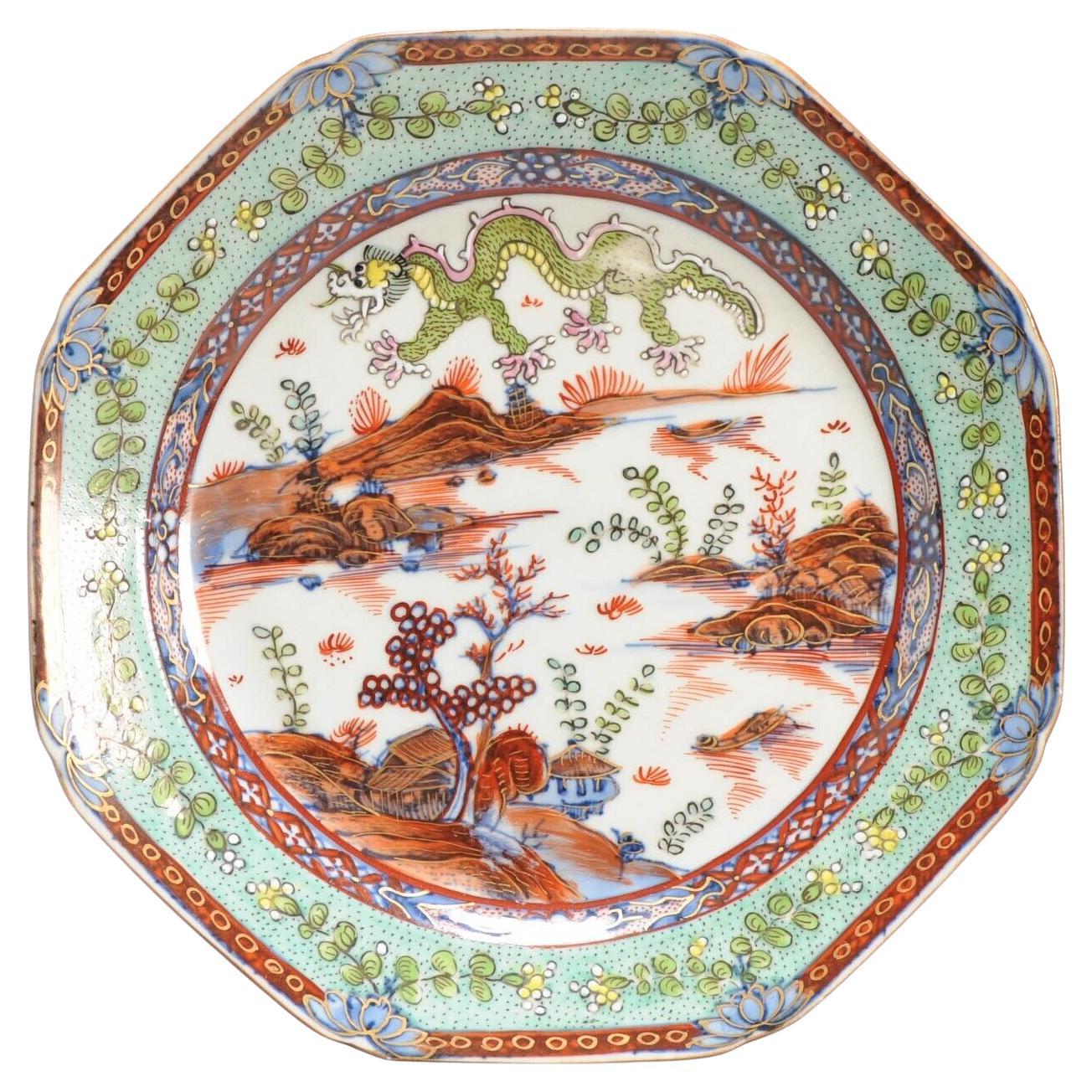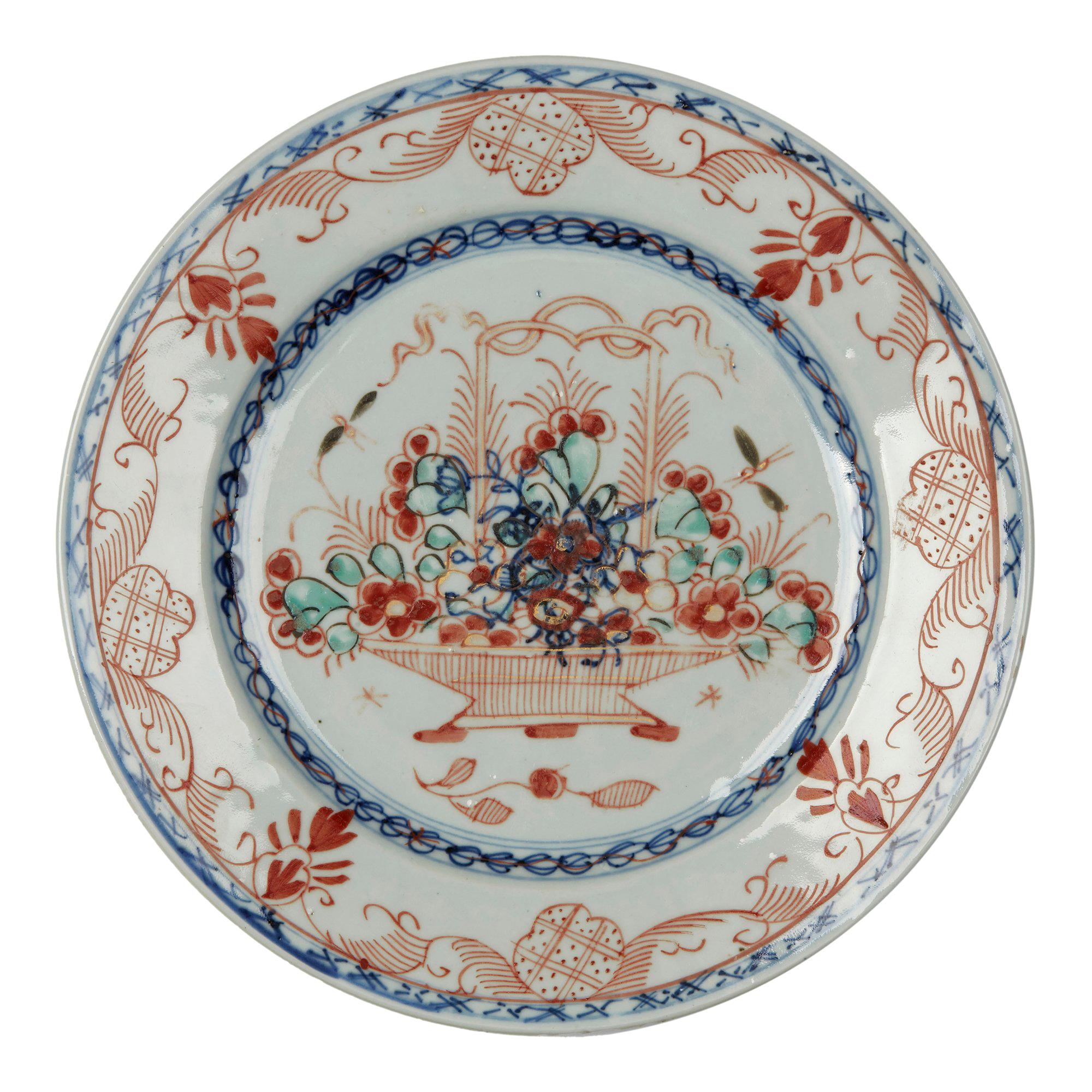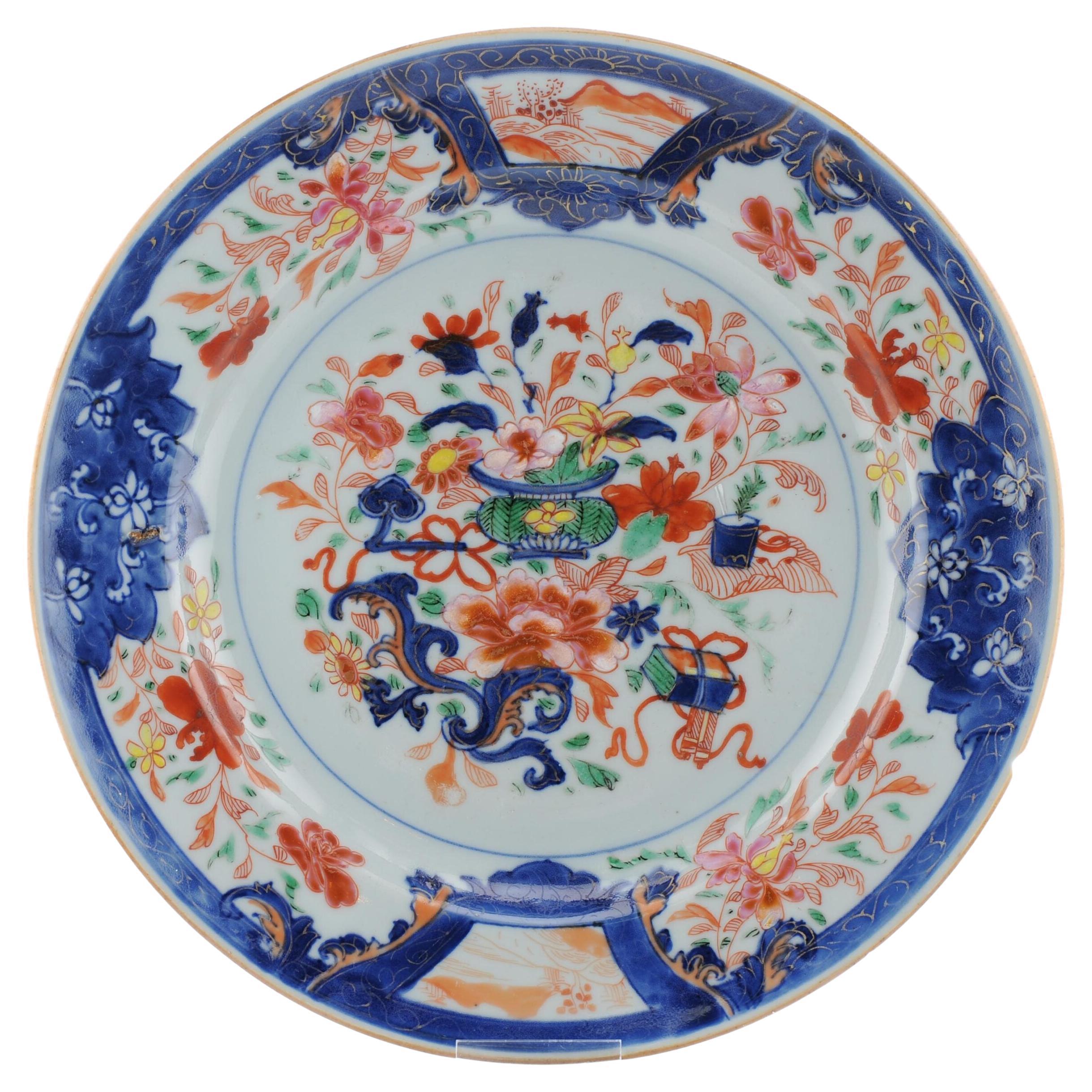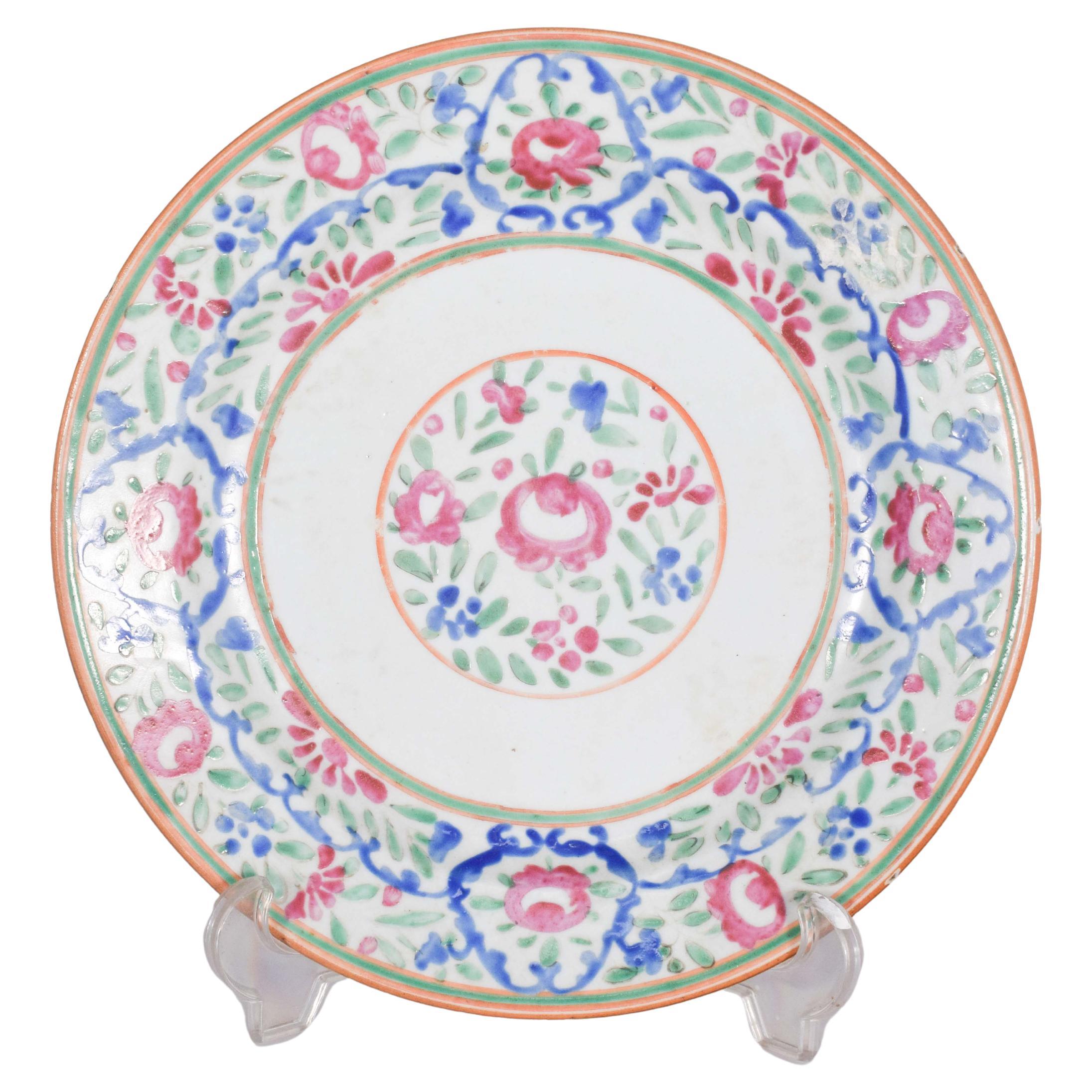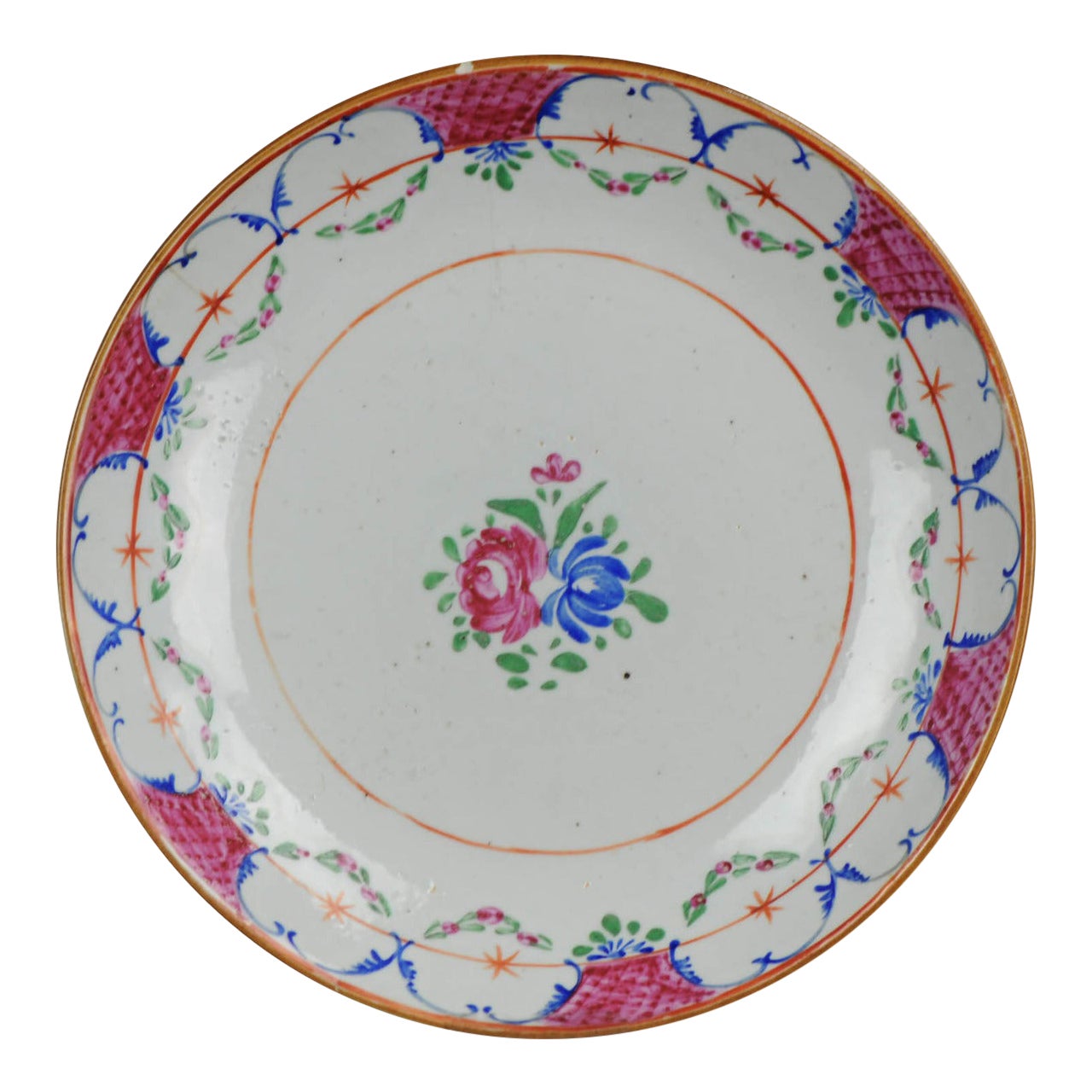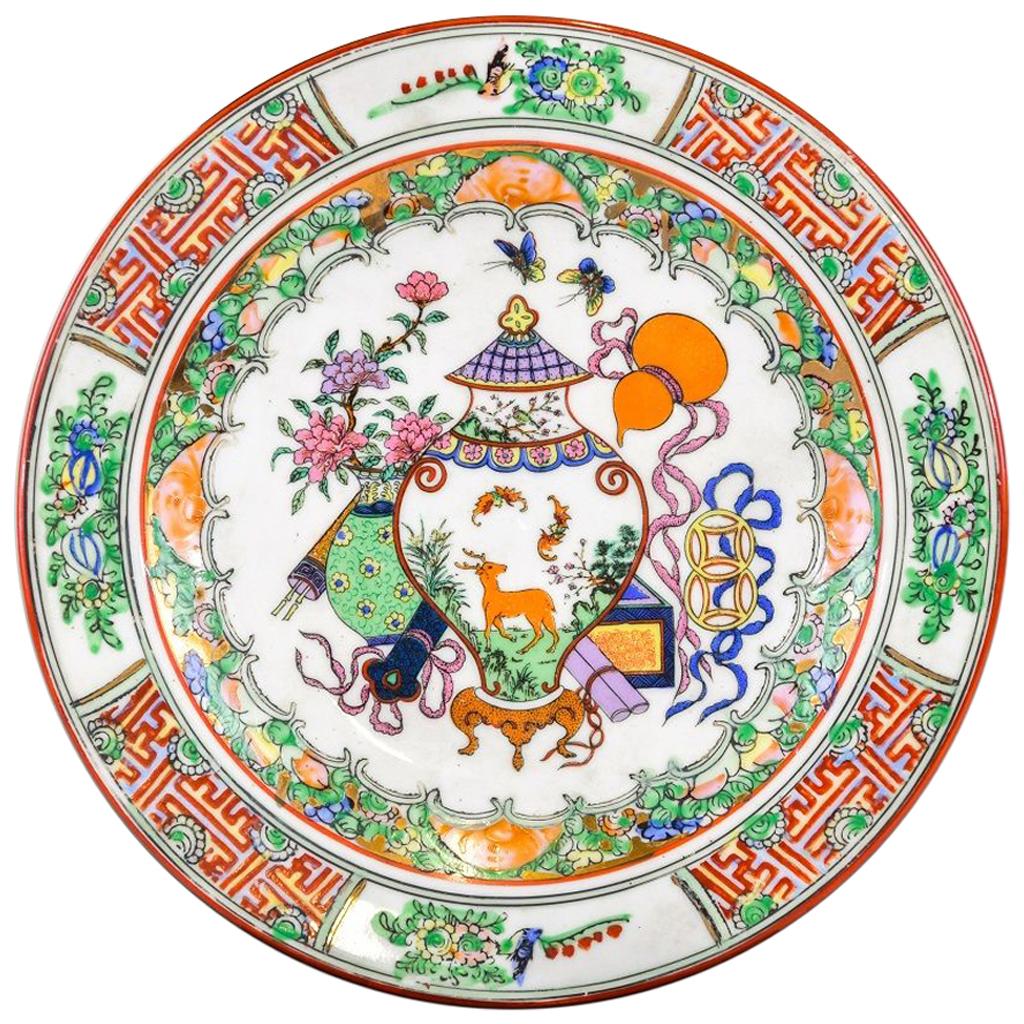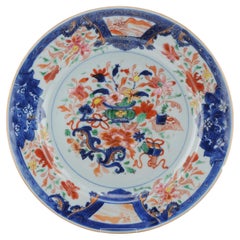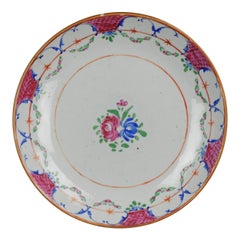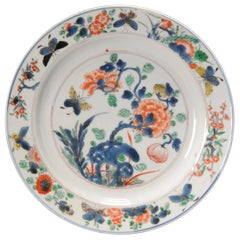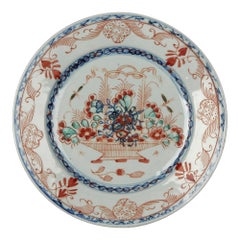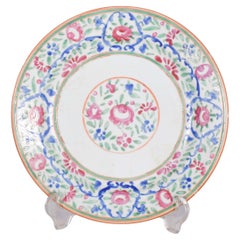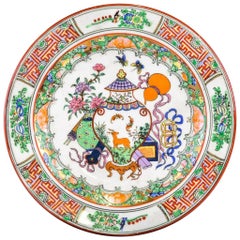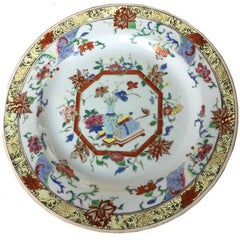Items Similar to Antique 18th Century Chinese Porcelain Plate with Regency Style Overdecorating
Want more images or videos?
Request additional images or videos from the seller
1 of 13
Antique 18th Century Chinese Porcelain Plate with Regency Style Overdecorating
$1,611.76
$2,014.7020% Off
£1,191.84
£1,489.8120% Off
€1,349.60
€1,68720% Off
CA$2,213.90
CA$2,767.3820% Off
A$2,461.73
A$3,077.1720% Off
CHF 1,288.76
CHF 1,610.9520% Off
MX$30,070.55
MX$37,588.1920% Off
NOK 16,194.57
NOK 20,243.2120% Off
SEK 15,234.24
SEK 19,042.8020% Off
DKK 10,276.16
DKK 12,845.2120% Off
About the Item
A very nicely made piece of 18th century porcelain decorated with a beautiful scene. Underglaze blue and overglaze other enamels done later in Europe.
We have also added a picture of how a similar original Blue and white dish would have looked like.
This is an example of British overdecoration.Provenance:Provenance: Doyle Sep 27, 2024 11:00 Boston Collects, Lot 1083 Six Chinese Porcelain Table Items
18th and 19th centuries Estate / Collection: Property of a Jamestown, Rhode Island Collector
Often seen as ugly and black sheep of the porcelain world. British 1810-1820 Clobbered wares deserve better as they are historically very interesting. So lets call them George the IV or Regency Taste redecorated porcelain. And leave the clobbered behind us as it does no justice to what they are at all. Its not that because we live in a time were these super funky colours are out of taste that we should hate on these pieces.
A short history!
During the early 19th century, the Prince Regent (later King George IV) played a key role in cultivating a taste for the exotic Orient among the British elite, influencing interior design during the Regency era. His lavish projects, such as the Royal Pavilion in Brighton, epitomized this fascination. The Pavilion, with its blend of Indian, Chinese, and Gothic elements, became a symbol of the Prince’s extravagant taste. The interiors featured Chinese wallpaper, Indian textiles, and oriental furniture, reflecting the era’s growing interest in Chinoiserie and other oriental-inspired designs.
This trend extended to the decorative arts, where clobbered Chinese porcelain—originally blue-and-white pieces—was reimagined with bright reds, golds, greens, and dragons to cater to the new European tastes. These colorful repainted pieces symbolized wealth, sophistication, and an affinity for the exotic, perfectly complementing the bold and opulent interiors of the time. The dragon, a powerful symbol in Chinese culture, was a recurring motif in these porcelain pieces, further aligning with the Regency’s romanticized view of the Orient. George IV’s penchant for luxury, eccentricity, and vibrant decoration influenced the wider aristocratic society, and clobbered porcelain became a prized addition to the Regency elite’s homes.
This fusion of European and oriental aesthetics reflected the period’s blend of cultural influences, making it a defining feature of Regency interior style.
Condition
Some frits to the rim only. Size: 23.3x2CM DiameterxHeight
Period
18th century Qing (1661 - 1912)
Shangrila Antique Amsterdam
- Dimensions:Height: 1.07 in (2.7 cm)Diameter: 9.14 in (23.2 cm)
- Style:Regency (Of the Period)
- Materials and Techniques:
- Place of Origin:
- Period:
- Date of Manufacture:Ca 1740
- Condition:
- Seller Location:Amsterdam, NL
- Reference Number:Seller: 1459848241131stDibs: LU4863242831552
About the Seller
5.0
Gold Seller
Premium sellers maintaining a 4.3+ rating and 24-hour response times
Established in 2015
1stDibs seller since 2019
266 sales on 1stDibs
Typical response time: 6 hours
- ShippingRetrieving quote...Shipping from: Amsterdam, Netherlands
- Return Policy
Authenticity Guarantee
In the unlikely event there’s an issue with an item’s authenticity, contact us within 1 year for a full refund. DetailsMoney-Back Guarantee
If your item is not as described, is damaged in transit, or does not arrive, contact us within 7 days for a full refund. Details24-Hour Cancellation
You have a 24-hour grace period in which to reconsider your purchase, with no questions asked.Vetted Professional Sellers
Our world-class sellers must adhere to strict standards for service and quality, maintaining the integrity of our listings.Price-Match Guarantee
If you find that a seller listed the same item for a lower price elsewhere, we’ll match it.Trusted Global Delivery
Our best-in-class carrier network provides specialized shipping options worldwide, including custom delivery.More From This Seller
View AllAntique 18th Century Chinese Porcelain Plate with Regency Style Overdecorating
Located in Amsterdam, Noord Holland
A very nicely made piece of 18th century porcelain decorated with a beautiful scene. Underglaze blue and overglaze other enamels done later in Europe.
We have also added a picture of how a similar original Blue and white dish would have looked like.
This is an example of British overdecoration.Provenance:Provenance: Doyle Sep 27, 2024 11:00 Boston Collects, Lot 1083 Six Chinese Porcelain Table Items
18th and 19th centuries Estate / Collection: Property of a Jamestown, Rhode Island Collector
Often seen as ugly and black sheep of the porcelain world. British 1810-1820 Clobbered wares deserve better as they are historically very interesting. So lets call them George the IV or Regency Taste redecorated porcelain. And leave the clobbered behind us as it does no justice to what they are at all. Its not that because we live in a time were these super funky colours are out of taste that we should hate on these pieces.
A short history!
During the early 19th century, the Prince Regent (later King George IV) played a key role in cultivating a taste for the exotic Orient among the British elite, influencing interior design during the Regency era. His lavish projects, such as the Royal Pavilion in Brighton, epitomized this fascination. The Pavilion, with its blend of Indian, Chinese, and Gothic elements, became a symbol of the Prince’s extravagant taste. The interiors featured Chinese wallpaper, Indian textiles, and oriental furniture, reflecting the era’s growing interest in Chinoiserie and other oriental-inspired designs.
This trend extended to the decorative arts, where clobbered Chinese porcelain—originally blue-and-white pieces—was reimagined with bright reds, golds, greens, and dragons to cater to the new European tastes. These colorful repainted pieces symbolized wealth, sophistication, and an affinity for the exotic, perfectly complementing the bold and opulent interiors of the time. The dragon, a powerful symbol in Chinese culture, was a recurring motif in these porcelain pieces, further aligning with the Regency’s romanticized view of the Orient. George IV’s penchant for luxury, eccentricity, and vibrant decoration influenced the wider aristocratic society, and clobbered porcelain...
Category
Antique 18th Century Chinese Regency Decorative Dishes and Vide-Poche
Materials
Porcelain
$1,611 Sale Price
20% Off
Antique Qing Dynasty Chinese Porcelain Amsterdams Bont Plate
Located in Amsterdam, Noord Holland
Sharing with you this very nicely decorated plate. What you see is a Jingdezhen made porcelain dish from around 1720-1730. Later decorated with a Rare type of decoration in Red, Gree...
Category
Antique 18th Century Chinese Qing Decorative Dishes and Vide-Poche
Materials
Porcelain
$597 Sale Price
20% Off
Antique Chinese Porcelain Charger Plate Qianglong Jiaqing Qing, ca 1780 - 1810
Located in Amsterdam, Noord Holland
Lovely Chinese Porcelain Charger. Unusual crude Lowestoft decoration. Typical late Qianlong or Jiaqing period pottery.
Additional information:
Material: Porcelain & Pottery
Type: Pl...
Category
Antique 19th Century Chinese Decorative Dishes and Vide-Poche
Materials
Porcelain
$582 Sale Price
20% Off
Quality Kangxi Period Chinese Porcelain Famille Verte Plate China, 18th Century
Located in Amsterdam, Noord Holland
A beautiful large antique Kangxi (1662-1722) dish decorated in the centre with a brightly-coloured scene of a different kind of flowers, rocks and a butterfly. The rim is decorated w...
Category
Antique 18th Century Chinese Decorative Dishes and Vide-Poche
Materials
Porcelain
$1,174 Sale Price
20% Off
Antique Kangxi Chinese Porcelain Dish Redecorated in Europe Landscape, 18th C
Located in Amsterdam, Noord Holland
Sharing with you this unusual European Decorated Kangxi Dish. Funky clobbering
References of similar pieces can be found in: European Decoration on Orient...
Category
Antique 18th Century Chinese Qing Decorative Dishes and Vide-Poche
Materials
Porcelain
$298 Sale Price
20% Off
Antique Edo Period Japanese Porcelain Plate Kakiemon Style, ca 1800
Located in Amsterdam, Noord Holland
Sharing with you this very nice edo period, early 19th c, example. The rim beautifully painted, quite unusual.
Unmarked at base
Arita ware, also known as Arita-yaki, has its origin...
Category
Antique 18th Century Japanese Edo Decorative Dishes and Vide-Poche
Materials
Porcelain
You May Also Like
Chinese Qianlong Hand Painted Porcelain Plate, 18th Century
Located in Bishop's Stortford, Hertfordshire
An exceptional antique Chinese Qianlong porcelain plate decorated in underglaze blue and overpainted in red and green glazes with light gilding with...
Category
Antique 18th Century Chinese Porcelain
Materials
Porcelain
A Chinese Porcelain Plate for Export, Qing Dynasty
Located in Lisboa, Lisboa
Chinese porcelain plate, for export, Qing Dynasty, Jiaqing period (1796-1820) with polychrome decoration.
It represents a refined example of export porcelain destined for the Europea...
Category
Antique Mid-19th Century Chinese Baroque Porcelain
Materials
Porcelain
Vintage Chinese Porcelain Plate, Made in China, Early 20th Century
Located in Roma, IT
This porcelain plate is an original decorative object realized in China by Chinese manufacture, at the beginning of the 20th century.
It is decorated with geometric and floral or...
Category
Early 20th Century Chinese Antiquities
Materials
Ceramic
Antique 18th Century Chinese Fencai porcelain plate, Kangxi
Located in Delft, NL
Antique 18th century Chinese Fencai porcelain plate, Kangxi
With decoration in the middle of a vase with flowers surrounded in octangle line with flo...
Category
Antique 18th Century Chinese Antiquities
Materials
Porcelain
Chinese Kangxi period Plate porcelain Finely Hand Decorated, circa 1700
Located in Lincoln, Lincolnshire
This is a beautifully hand painted Chinese Export porcelain Plate from the Qing, Kangxi period, (1662-1722), circa 1700.
The plate is of large dinner plate size with a 10 inch di...
Category
Antique Early 18th Century Chinese Chinese Export Ceramics
Materials
Porcelain
Fine Chinese Export Canton Porcelain Plate
Located in Auribeau sur Siagne, FR
This is a plate from china, it has been made late 19th century, very nice colors, green, orange blue. It is a canton plate.
Category
Antique Late 19th Century Chinese Chinese Export Dinner Plates
Materials
Porcelain
$334 Sale Price
20% Off
More Ways To Browse
Antique Chinese Porcelain Plates
18th Century Chinese Plate
Gold Chinese Plate
British Antique China
Chinese Plates With Gold
Black And White Decorative Plates
Regency Style Chinoiserie
Porcelain Dishes With Gold
Plates Chinese Enamel
Royal Europe China
Royal Gold China
Royal Pavilion
Gold Plated Dishes
18th Century Chinese Table
Chinese Early 19th Century Chinoiserie
Antique Red Dishes
Chinese 18th Century Blue And White Plate
Brighton Style
